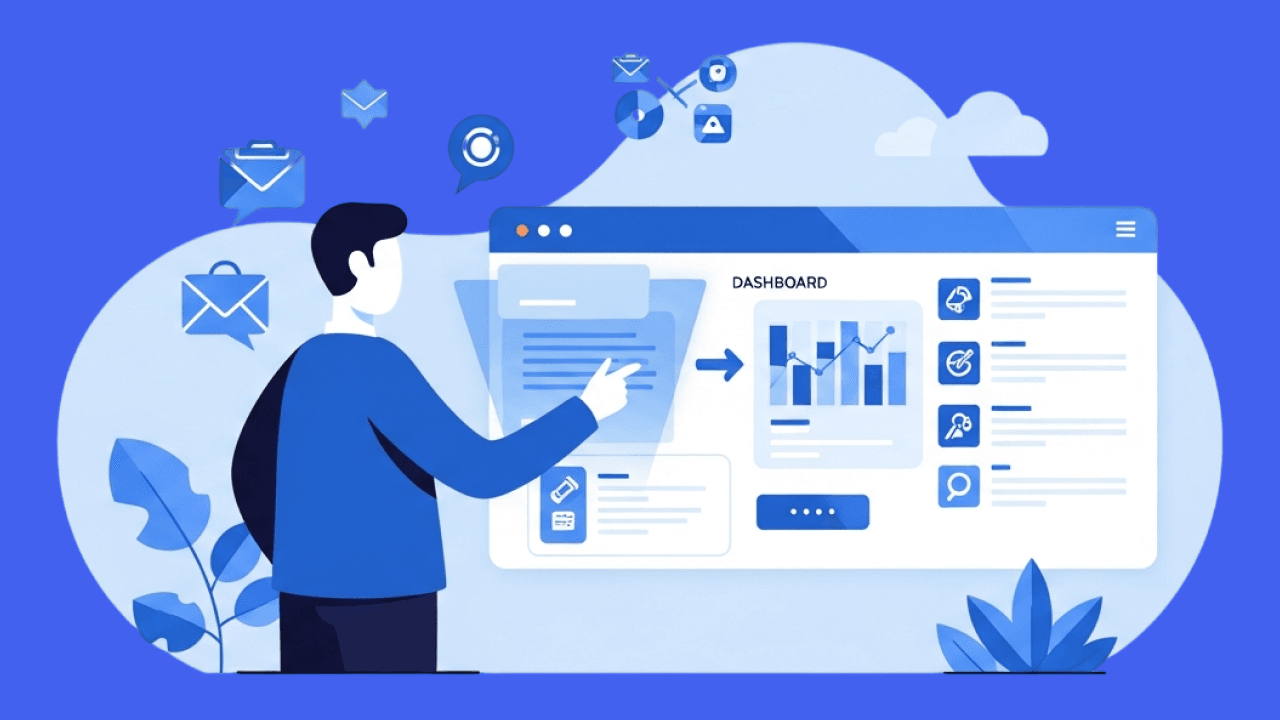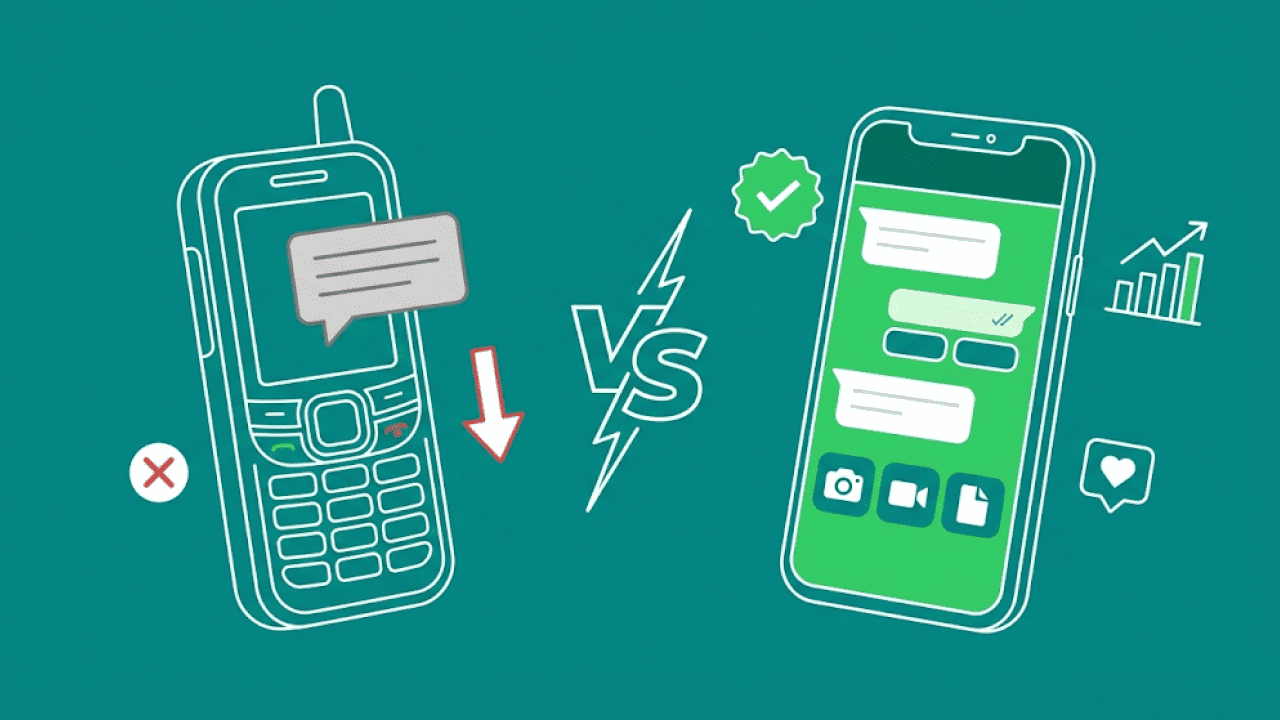In e-commerce, lightning-fast responses on the phone determine customer loyalty and revenue. But rising call volumes, a shortage of skilled workers, and increasing support costs are posing growing challenges for companies and agencies. This is where the AI phone assistant revolutionizes customer service: with AI voice, intelligently controlled phone calls, and deeply integrated telephony for customer service, brands in the DACH region secure a decisive edge – and make 24/7 support the new standard.
What is an AI phone assistant – and why does it set new standards in e-commerce?
An AI-supported phone assistant is far more than a digital answering machine. Equipped with modern language models and voice bots, it automatically answers calls, understands natural language, identifies concerns in a flash, and answers them proactively or forwards them to suitable employees if necessary. Unlike classic answering machines or rigid phone assistants, the AI recognizes contextual information, personalizes conversations live, and can seamlessly cover even more complex e-commerce processes such as order status, returns, or invoice information retrieval.
This makes the AI voice agent the crucial interface between customer and company – and transforms support from a bottleneck into a growth asset.
Key advantages and areas of application
AI phone assistants offer enormous advantages across industries – above all, cost savings and availability are a big plus. AI voice assistants answer customer inquiries without waiting times – 24/7, even at night, on weekends, and on holidays.
In e-commerce, the focus is on the automated handling of order status queries, returns, or subscription management. Here, a clear white space emerges for specialized solutions like ArminCX, which combines classic telephony with AI-supported process automation and omnichannel communication. In this way, the phone assistant becomes not only a service booster but also a revenue driver.
In healthcare, for example in medical practices, they take over appointment acceptance, relieve practice teams, and ensure that patients have a contact person around the clock.
In the skilled trades, they facilitate order acceptance by automatically recording inquiries, structuring them, and forwarding them to the right employees – saving time and preventing information loss.
Technology & functionality: artificial intelligence meets speech processing
One call. One problem. One solution – in fractions of a second: AI phone assistants combine state-of-the-art speech recognition (ASR), natural language processing (NLP/NLU), and adaptive machine learning into a new level of service quality. Thanks to voice bot technology, spoken concerns are analyzed, intelligently resolved via voice dialog systems, and all information is synchronized in the background with existing systems (ERP, CRM, shops). Where routine ends or emotions play a role, the assistant automatically hands over to human colleagues (human handover) and documents the entire interaction without media breaks.
The more intelligent and flexible the language models, the greater the customer benefit: dialects, colloquial language, changing formulations, and even emotional escalations are reliably recognized – customer satisfaction rises, frustration over being on hold falls.
Providers at a glance
The market for AI phone assistants is growing rapidly – especially in the DACH region, many companies are already relying on smart voice solutions to relieve customer service and internal processes. In 2025, eight providers in particular count among the most important players in Germany: Fonio, VITAS, Cituro, CGM one, Praxis-Telefonassistent, Docmedico, kiberatung.de as well as Diabolocom.
While some providers such as Fonio or CGM one position themselves strongly in healthcare, solutions like VITAS or Diabolocom cover the all-round and enterprise area. Cituro and Docmedico focus on healthcare processes, while Praxis-Telefonassistent and kiberatung.de primarily address small and medium-sized businesses. The providers differ in industry focus, integrations, and pricing models – clear proof that the choice of the right AI phone assistant strongly depends on individual requirements.
Comparison table of the most important AI phone assistants
The German market for AI phone assistants is growing rapidly. But the difference lies in the details: while most systems remain tailored to healthcare or the skilled trades, ArminCX is opening up a genuine e-commerce voice AI for the first time.
| Provider | Industry focus | GDPR-compliant | Integrations | Pricing model | Special features |
|---|---|---|---|---|---|
| Fonio | Medical/Trades | Yes | Practice software, CRM | Per minute | Specially for practices & small businesses, easy to use |
| VITAS | All-round (B2B/B2C) | Yes | CRM, ERP, cloud telephony | Per minute/License | Flexible solution for various industries, scalable |
| Cituro | Healthcare | Yes | Doctolib, calendar | Volume-based | Focus on appointment management in healthcare |
| CGM one | Medical/Practices | Yes | ERP, appointment software | Per month | Strong player in the medical environment, deep practice integration |
| Docmedico | Medical | Yes | Practice IT | Flat/Volume | Optimized specifically for doctors and medical IT systems |
| Praxis-Telefonassistent | Trades/Medical | Yes | Outlook, calendar | Per minute | Virtual telephone service focused on SMEs |
| Diabolocom | Large enterprises | Yes | SAP, Salesforce, cloud | License/Project | Enterprise solution, strong in call center & corporate environments |
| kiberatung.de | SMEs/Consulting | Yes | CRM, Microsoft 365, cloud telephony | Per user/Month | Consulting-oriented approach, individual customizations |
| ArminCX | E-commerce | Yes | Shopify, WooCommerce, Klaviyo, ERP | Per minute/License | AI-first CX suite, omnichannel inbox, WhatsApp support, deep shop integrations |
Fonio
Industry focus: Medical/Trades GDPR-compliant: Yes Integrations: Practice software, CRM Pricing model: Per minute Special features: Specially for practices & small businesses, easy to use
Fonio is aimed at smaller practices and businesses that need an uncomplicated telephony solution. With per-minute billing, cost control remains transparent, while integration into existing practice software makes everyday work easier.
VITAS
Industry focus: All-round (B2B/B2C) GDPR-compliant: Yes Integrations: CRM, ERP, cloud telephony Pricing model: Per minute/License Special features: Flexible solution for various industries, scalable
VITAS impresses with its versatility and can be used in both B2B and B2C environments. Thanks to numerous integrations and flexible billing models, it is suitable for companies of any size looking for a scalable telephony solution.
Cituro
Industry focus: Healthcare GDPR-compliant: Yes Integrations: Doctolib, calendar Pricing model: Volume-based Special features: Focus on appointment management in healthcare
Cituro is strongly geared towards appointment management in the medical environment. Particularly through integrations with tools like Doctolib and calendar solutions, it offers a smart solution for efficient appointment organization.
CGM one
Industry focus: Medical/Practices GDPR-compliant: Yes Integrations: ERP, appointment software Pricing model: Per month Special features: Strong player in the medical environment, deep practice integration
CGM one is considered an established solution for medical practices and healthcare facilities. The monthly billing makes it plannable, while deep integrations with practice and ERP systems ensure seamless processes.
Docmedico
Industry focus: Medical GDPR-compliant: Yes Integrations: Practice IT Pricing model: Flat/Volume Special features: Optimized specifically for doctors and medical IT systems
Docmedico was developed specifically for medical requirements. By specializing in medical practices and practice IT, it convinces with tailored functions and high reliability in the healthcare sector.
Praxis-Telefonassistent
Industry focus: Trades/Medical GDPR-compliant: Yes Integrations: Outlook, calendar Pricing model: Per minute Special features: Virtual telephone service focused on SMEs
Praxis-Telefonassistent is a virtual service that relieves small companies and practices. Through simple integration into Outlook and calendars, calls are managed efficiently and valuable time is saved in day-to-day business.
Diabolocom
Industry focus: Large enterprises GDPR-compliant: Yes Integrations: SAP, Salesforce, cloud Pricing model: License/Project Special features: Enterprise solution, strong in call center & corporate environments
Diabolocom specializes in large companies and call centers. With strong integrations into enterprise tools like SAP and Salesforce, it is particularly suitable for corporations that need scalable telephony and contact center solutions.
kiberatung.de
Industry focus: SMEs/Consulting GDPR-compliant: Yes Integrations: CRM, Microsoft 365, cloud telephony Pricing model: Per user/Month Special features: Consulting-oriented approach, individual customizations
kiberatung.de relies on personal consulting and individual solutions for SMEs. With close integration into Microsoft ecosystems and flexible customizations, it is ideal for smaller companies that need practical telephony and CRM integrations.
ArminCX
Industry focus: E-commerce GDPR-compliant: Yes Integrations: Shopify, WooCommerce, Klaviyo, ERP Pricing model: Per minute/License Special features: AI-first CX suite, omnichannel inbox, WhatsApp support, deep shop integrations
ArminCX was developed specifically for e-commerce. With an AI-first approach, an omnichannel inbox, and deep integration into shop systems like Shopify and WooCommerce, it helps retailers make customer communication more efficient and personal.
Why ArminCX as a specialized e-commerce voice AI is becoming the new standard
Traditional phone assistants often offer only appointment management or take callbacks. ArminCX goes decisively further: as an AI voice agent with a focus on e-commerce processes, the solution can:
Provide order status and delivery information automatically over the phone
Intelligently initiate returns and hand them over to the inventory management system
Send invoices and documents directly by email
Match callers with customer data via phone number matching
Cover support peaks (e.g., Black Friday, sales) without waiting times
Ensure GDPR-compliant data processing on European (Azure) servers
Integration with Shopify, WooCommerce, Klaviyo & ERP makes ArminCX the first choice when it comes to real automation in omnichannel support. No time-consuming customizations, no generic solutions – but a voice AI built for your e-commerce setup.
What should companies pay attention to when choosing?
Choosing the right AI phone assistant determines efficiency, customer satisfaction, and data security. Therefore, pay particular attention to the following points:
Integrations: The AI assistant should connect effortlessly with shop systems, ERP, and CRM solutions so that processes run automated and without breaks.
Language models & multilingualism: Important for international customer communication – the more languages supported, the more flexible you are.
GDPR & data security: Rely on providers with EU hosting, encrypted communication, and clear deletion processes to be legally secure.
Support: Check whether local, German-speaking support is available. This shortens response times and greatly facilitates collaboration.
This ensures that your AI phone assistant not only fits technically but also contributes in the long term to relieving your team and increasing customer satisfaction.
ROI & cost-effectiveness: cost savings in e-commerce support
The calculation convinces: automated handling of calls (billed per minute or volume-based) significantly reduces personnel costs. Fixed monthly licenses or usage-based tariffs (from a few cents per minute) provide planning security – with maximum scalability. Studies such as Splendid Research show: companies achieve up to 30% lower support budgets with AI voice agents and increase revenue through faster, better service interaction.
Another plus: every automated inquiry also means GDPR-compliant processing and protects sensitive customer data through European cloud telephony (e.g., Azure servers), strict access management, and encrypted transmission – a must-have for brands and agencies of any size.
Best cases & smart applications of AI voice assistants
Automated returns processing via voice dialog on the phone
Immediate information on order status using telephone AI
Direct sending of invoices and documents via voice control
Use of cloud telephony for flexible scaling during peak phases
Proactive detection of complex concerns and immediate forwarding to specialist departments
Trends 2025: the future of AI telephony in e-commerce support
AI phone assistants are already automating large parts of support today. However, the trend continues: personalized consulting, intelligent context control, and integration into multichannel landscapes (e.g., social media, chat, messaging) will define the picture in 2025. Voice agents recognize intentions, analyze moods, and proactively offer solutions or offers – for example, through upselling and loyalty outreach over the phone.
GDPR, made in Germany, and data sovereignty are moving even more into the spotlight. Technically, deep learning, cloud-based voice platforms, and open interfaces are initiating the next stage of digital customer communication. Companies that adopt specialized solutions like ArminCX early are now establishing the basis for sustainable growth, efficiency, and first-class customer satisfaction.
Conclusion: your roadmap to the AI voice agent in e-commerce
A modern AI phone assistant is more than a tool – it is the key to customer satisfaction, cost efficiency, and competitive advantage. ArminCX proves as an e-commerce-focused voice AI that automated phone support transforms not only healthcare and skilled trades, but especially growth-oriented shops. Seamless integration, smart language models, strong data protection, and human handover make the difference. With clearly structured change management, ongoing optimization, and transparent KPIs, digital telephony for customer service becomes a success story – and lifts your company to the next level.
FAQ: frequently asked questions about AI phone assistants in e-commerce
1. What is an AI phone assistant and how does it differ from classic solutions?
A modern AI phone assistant works like an intelligent AI answering machine but goes far beyond mere recording. It acts as a smart phone assistant that automatically answers calls, understands the concerns of internet users or customers, and processes them directly – in real time, around the clock. While a human in customer support is often only available during office hours, the AI can also schedule appointments at night, answer common questions, or record data. Unlike classic systems, it recognizes context, forwards more complex concerns to the practice team or sales, and thus improves the entire customer experience.
2. How high are the costs for an AI phone assistant in e-commerce?
The pricing model depends heavily on the provider. Most solutions work with per-minute billing or offer monthly licenses. Basic packages often start in the low cent range. Solutions like Tenios or ArminCX with deep integration into shop systems are more expensive but pay off through efficiency gains and better division of labor between humans and AI. Due to cost savings in customer support and additional opportunities in sales, the use quickly pays off.
3. Which providers dominate in 2025, which solution fits which need?
In the market there are different types of solutions, depending on industry focus and requirements:
Fonio, CGM one, Docmedico, Cituro → specialized in medicine, healthcare, and practice teams.
VITAS, Diabolocom → scalable all-round solutions for larger companies and corporations.
ArminCX → AI-first CX suite for e-commerce, with omnichannel inbox and deep integration into Shopify, WooCommerce, and Klaviyo.
This allows companies to choose the right solution – whether for medical appointments, consulting in the skilled trades, or automated contacts in online retail.
4. How does integration with existing CRM, shop, and ERP systems work?
Integration usually takes place via open APIs and standard connectors. Typical interfaces are CRM systems, ERP solutions, or shops like Shopify and WooCommerce. Providers like Google or ArminCX also rely on AI-supported flows to automatically link calls with customer data. Clearly defined tasks are important: for example, scheduling appointments, querying data protection notices, or resolving standard questions about orders. This creates an assistant that fulfills both the possibilities of AI and the requirements for data protection and GDPR.
5. What are typical challenges during implementation – and how can they be solved?
Challenges are often acceptance in the practice team, missing escalation processes from the AI agent to the human helper, or incomplete data. Best practices are: phased introduction, clear communication within the company, involving the team in shaping work with AI, as well as continuous optimization of the customer experience. Providers like Tenios or ArminCX offer practical support here.
Test the AI voice support channel from ArminCX and experience how order status & return inquiries are resolved fully automatically over the phone.







![Salesforce WhatsApp-Integration [Update 2026]](https://blogfiles-chatarmin.s3.eu-central-1.amazonaws.com/Salesforce_Whats_App_Integration_Sales_Cloud_Whats_App_Integration_0d11a96c30.jpeg)
